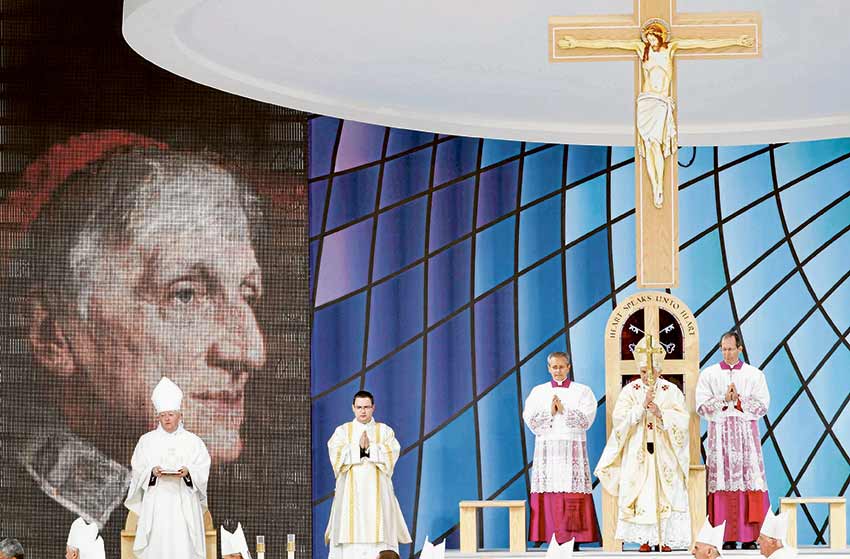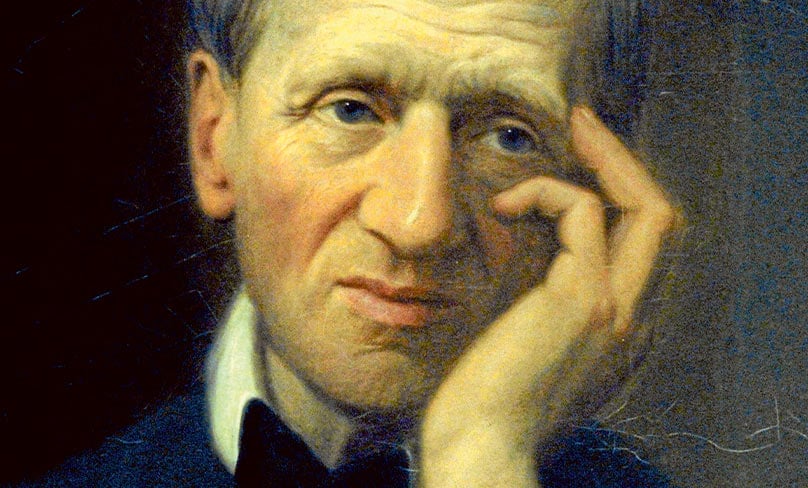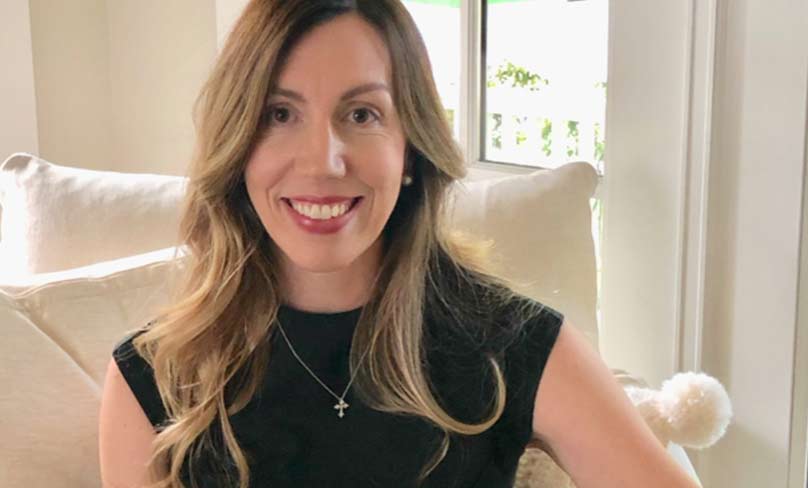
The English paster, educator, theologian and historian John Henry Newman is to be declared a saint by Pope Francis at the Vatican Sunday October the 13th. Initially ordained as a Church of England priest Newman founded the Oxford movement before converting to Catholicism in 1845.
While renowned as an orator, philosopher and theologian one of his most lasting legacies is a series of lectures titled the Idea of a University. Unlike the majority of today’s universities consumed by corporate managerialism, cultural-left political correctness and tenured radicals Newman embraces what he describes as a liberal education.
Newman defines this as a “process of training, by which the intellect, instead of being formed or sacrificed to some particular or accidental purpose, some specific trade or profession, or study of science, is disciplined for its own sake, for the perception of its own proper object, and for its own highest culture”.
While governments regularly define a university education in terms of productivity, global competitiveness, STEM subjects and the ability to attract foreign students what Newman has in mind is a more lofty, profound and enduring sense of what it means to be educated.
Newman’s starting point is that knowledge does not arise intuitively or by accident and that a university education should be directed at the “cultivation of the intellect”.
Unlike Marxist inspired critical theory, postmodernism and deconstructionism Newman’s ideal is one that seeks wisdom and truth.
An education “pursued for its own sake” and one where “Truth of whatever kind is the proper object of the intellect; its cultivation then lies in fitting it to apprehend and contemplate truth”. Newman also warns against “the philosophy of Utility”, an approach that restricts education to what can be “weighed and measured”.

And for those who argue education must be of practical use Newman argues a liberal education has “great secular utility” as it is best able to foster the ability to critically evaluate, to think rationally and to be culturally literate.
The English poet T S Eliot argues in a similar vein when he suggests universities “should stand for the preservation of learning, for the pursuit of truth, and in so far as men are capable of it, the attainment of wisdom”.
While now most likely condemned for his ‘whiteness’ and guilty of ‘Western supremacism’ the English philosopher Michael Oakeshott also suggests a university education should never be restricted to what is utilitarian or immediately contemporary and relevant.
Oakeshott describes education as a dialogue where students become familiar with Western civilisation’s “material, emotional, moral and intellectual inheritance”.
The purpose of a university education is to enable students “to recognize the varieties of human utterance and to participate in the conversation they compose”.
As noted by the Australian author Don Markwell in A Large and Liberal Education Australia’s early universities established in Sydney and Melbourne championed a liberal education and one very much in the tradition of Oxford and Cambridge.
Those responsible valued “the importance of a university embracing a wide range of subjects, including the traditional liberal arts, with students being exposed to that breadth of human knowledge”. And for most of 19th and 20th centuries as noted by the NSW academic Alan Barcan in Sociological Theory and Educational Reality this liberal view of education prevailed.

Fast forward to more recent times and it’s obvious as argued by the sinologist Pierre Ryckmans a liberal view of education has been replaced by a cultural-left, ideological view drawing on a rainbow alliance of radical neo-Marxist, gender and sexuality, postmodern, feminist and post-colonial theories.
Academics opposed to the prevailing cultural-left orthodoxy and group think are shunned, have little chance of promotion or of receiving research funding and being published in peer reviewed journals. Such is the prevalence of identity politics and a culture of victimhood that trigger warnings, safe spaces and diversity toolkits are commonplace.
Classic literature is reduced to deconstructing texts in terms of power relationships and Western civilisation condemned as promoting “racism, sexism, classism, historical injustice and prejudice based on religion”.
Even worse is the sin of embracing “whiteness” – defined as a “hegemonic racial dominance that has become so natural it is almost invisible”.
Even the once great University of Sydney has succumbed. In language much like that of Orwell’s Big Brother the purpose of education is to “unlearn”. Students have to be taught to “challenge the established, demolish social norms” in areas such as same-sex marriage, indigenous land rights, peace studies, refugees and the environment.
What’s to be done? While it is impossible to repeat the past there are positive signs. Sydney’s liberal-arts Campion College represents a beacon of sanity. Western civilisation programs funded by the Institute of Public Affairs, the Mankall Economic Foundation and the Ramsay Centre for Western Civilisation also suggest not all is lost.
There is also the essential truth that human nature is such that cultural-left ideology and group think represents a very thin and disappointing gruel that pales into insignificance given the enduring, rich and enlivening heritage offered by the great works of Western culture embodied in a liberal education.
